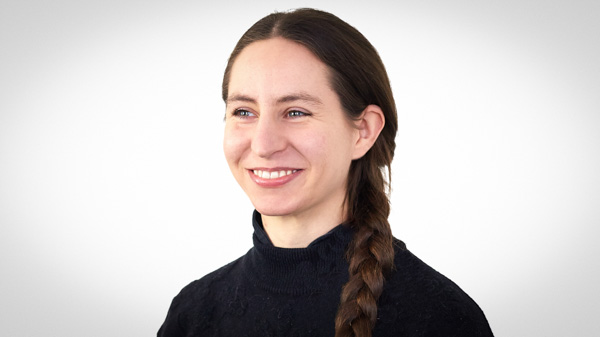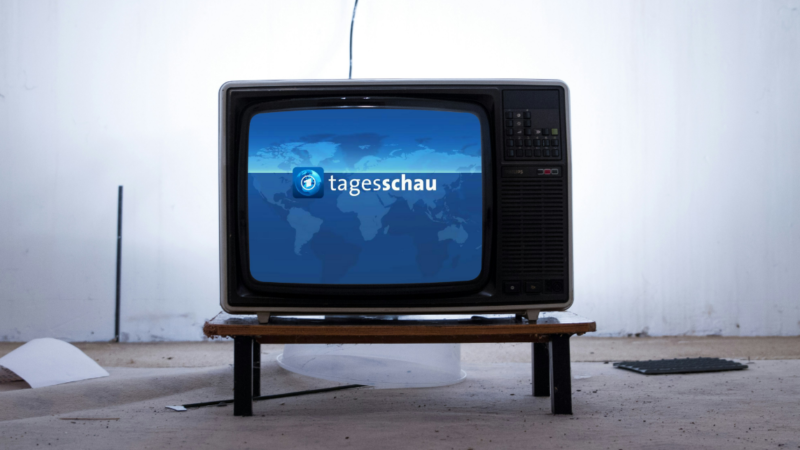Unsere vernetzte Welt verstehen

Cory Doctorow im Interview mit Kaja Scheliga und Theresa Züger
“Science fiction writers who try to predict the future are like cocaine dealers who take their own coke, it is a dangerous amusement to try and predict the future.” – Cory Doctorow
Rückblick auf den 8ten Mai 2013; es ist der dritte Tag der Re:publika in Berlin. Der Science Fiction Autor, Blogger und Technologieaktivist Cory Doctorow hat gerade seinen Vortrag ‘It’s not a fax machine connect to a waffle iron’ gehalten, gefolgt von einer Serie von Presseinterviews. Trotzdem ist er für noch ein weiteres, spontanes Interview bereit. Meine Kollegin Theresa Züger stößt mit ein paar Fragen dazu. Wir fragen Cory Doctorow wie er den Einfluss des Internets auf unser Leben, auf die Art und Weise wie wir Wissen teilen und wie wir Geschichten erzählen sieht. Wir fragen auch welche Hauptthemen er in den Debatten die über das Internet geführt werden identifiziert, was er tun würde wen er die Meinung von jemandem in Bezug auf Internetregulierung ändern könnte und wie er sich das zukünftige Internet vorstellt. Hier sind seine Antworten in gekürzter Fassung.
Kaja Scheliga: From your perspective, what are the current most important hot topics discussed on the internet about the internet?
Cory Doctorow: The big themes are the use of regulation of computers and networks to solve social problems, the willingness to use the internet as a surveillance tool, the moral hazard of governments using the internet as surveillance tool because it leads them to underregulate companies that try to get people to overshare because that way they have more information to pull in. It also incentivizes them to work with people who in any other context would be considered criminals and instead of chasing those people with cops they chase them with checkbooks. I think those are some of the major themes, also network neutrality, but for me the overarching theme is treating the internet with the respect it deserves, treating it as a globally shared ecosystem that is vital to ongoing human health and agency and security and economic health.
When Martha Lane Fox, who is now a baroness, was made the UK champion for Digital Inclusion she commissioned a study by PricewaterhouseCoopers where they compared two groups of people who lived in public housing estates in the post-industrial north of England. One group were people who have been in a pilot project to give them free internet and the other group had not. And what they found was that the group with free internet has lots and lots of advantages. All the things that we use to measure the quality of social programs improved by the internet.
And yet, whenever the internet is part of a problem, and it is part of a lot of problems, some of them I think are important and some of them are not. But like anything from human trafficking to offending the King of Thailand to pornography, to child pornography, to copyright infringement, to Jihadism, the answer is always: it is just the internet, we can afford to mess with it. It will just be removing the Jihadism feature from the internet and not breaking the internet in some important way and depriving a lot of people from the benefit they derive from it.
KS: How does the internet change the way we live?
CD: I think it changes it in every way. The foundational piece of why it changes it in all those ways is that it lowers the cost of coordination. Making it cheaper to do things together means that we can do more and we can do more with less hierarchy. So on the one hand organizations can do more too. Governments are empowered to do a lot of things they could not do before, some for good and some for bad. There is increased surveillance and increased control but also it is cheaper to provide positive social intervention in the form of education materials and health information and so on, or even reaching out to disadvantaged populations to track human trafficking. So that is what it does for organizations but what it does for people who are not in formal organizations is that it increases the amount of things that you can do without having to formally organize or within the framework of a much more lightly organized institution. We can build something as complicated as an encyclopedia with the kind of organization infrastructure that we used to have to gather to run a bake sale. Everything we do that requires more than one person, everything we do that is superhuman, that transcends the limitations of human, the internet supercharges for good and for bad.
KS: What are the challenges of sharing knowledge on the internet?
CD: There is a bunch of policy challenges related to copyright and also to the way the journals operate if we are talking about academic work here. And the chokehold that journals have over the careers of academics that requires academics to enter into this very one-sided transaction with them that ends up costing their own institutions extra money. In order to get a raise from your boss you have to sign over your copyright to a journal that is going to charge your institution tens of thousands of dollars a year to have the article that they paid to have produced in the first place. This is certainly an institutional barrier to sharing knowledge. You could change the way we measure impact factors, you could change the way we do career advancement in the academe, you could legislate certain requirements for any kind of research that received public funding that would certainly tilt the way that the institutions do it, those are all important. Copyright infrastructure makes it much easier to selectively sensor the internet. So research that is controversial is easier to remove.
The technology transfer programs from most institutions are a net cost not a net gain, you spend more money licensing from institutions that used to give it to you for free than you make by licensing out. Just think about it, we have a bunch of people giving each other stuff for free and then they all start charging money for it and paying an intermediary to manage those transactions, there is entropy in the system. That means that it is much easier to talk about knowledge as property and for states that have inconvenient facts emerging from their publicly funded research to suppress those facts on the grounds that they need to suppress the publication in order to command the highest price for those facts.
KS: How does the internet impact the way we tell stories? Or maybe the way you tell stories?
CD: Certainly I allow my art to be freely shared on the internet and I do so for both political and artistic reasons. I think it is a fact, whether or not you regard it as a problem, it is an incontrovertible fact that everything that people love that is artistic will be shared on the internet. So if you are making art that is not intended to be shared, you are not making contemporary art. That is not a sin, there is a lot of good art that is not contemporary art.
I am a science fiction writer so I should be engaged with the contemporary, if not the future. And so I do make my work freely available. Certainly the existence of my blog is an enormous tool for composition, by taking up everything that I find that seems significant and turning it into a blog post for public consumption I help myself remember it for later retrieval and use in my work. So what ends up happening is that all of the bits and pieces, all the fragments kind of turn into a supersaturated subconscious solution of potential story ideas, and eventually some of them will stick together and nucleate and you get spontaneous crystalline formations of novels and stories and speeches and articles out of all this stuff just laying around in there.
KS: Being a “cyber-utopian”, what is your vision of the future internet, where do you think it is going?
CD: I think science fiction writers who try to predict the future are like cocaine dealers who take their own coke, it is a dangerous amusement to try and predict the future, so I do not. But I am optimistic that lowering the cost of working together opens up possibilities for us to do things that are truly remarkable, that allow us to do more with less hierarchy. I think hierarchy is one of the necessary evils of the pre-internet era and it is becoming less necessary by the day thanks to cheaper coordination. But it opens up existential threats, and some of those are in the form of surveillance and control and some of them are in the form of crime, and some of them are at the nexus of those two things where the rubric for surveillance and control is fighting crime and where the tools of surveillance are in control or developed by criminals.
Theresa Züger: If you look around yourself do you think that we understood well enough what the internet means to us now and will mean for us in the future?
CD: No, I do not think so at all. I do not pretend to have a complete understanding of it either. Gardner Dozois, the science fiction editor, once said that the job of a science fiction writer is to consider the car and the movie theatre and invent the drive-in and then go on to predict the sexual revolution. But what he missed was that before the car and before the sexual revolution and before that need for every teenager to get a car in order to get laid there was no reason for people who were civilians in America to carry photo ID. And so the database nation has its origin in the car too. The production and widespread use of government issued identification is really the story of the car. So some of us are talking about drive-ins and a few of us are talking about sexual revolutions and some of us are talking about the database nation. But when you think about all the things that come out of the database nation, nobody is talking about those fourth- and fifth-order effects of the internet. I imagine in a hundred years our descendants will look back at us and say: you thought that the major impact of the internet was this, that and the other and you missed this entirely different thing that was way weirder and more interesting.
TZ: A little mind experiment: if you could change some people’s minds, not thinking about the moral part of that question, making them understand something that you think is really important to understand right now, what would it be and who would you choose? More the people, more the policymakers or more company people?
CD: If I could change some people’s minds, I would change policymaker’s minds and I do not think that there is any one person who can do it. I do not believe in a great man theory of history. But I think that if you could change policymakers minds overall about the second- and third-order consequences of regulating various social ills by trying to regulate the internet that that would be enormously powerful in terms of safeguarding the future.
Dieser Beitrag ist Teil der wöchentlichen Blogartikel der Doktoranden des Alexander von Humboldt Institutes für Internet und Gesellschaft. Er spiegelt weder notwendigerweise noch ausschließlich die Meinung des Institutes wieder. Für mehr Informationen zu den Inhalten dieser Artikel und den assoziierten Forschungsprojekten kontaktieren Sie bitte info@hiig.de.
Dieser Beitrag spiegelt die Meinung der Autorinnen und Autoren und weder notwendigerweise noch ausschließlich die Meinung des Institutes wider. Für mehr Informationen zu den Inhalten dieser Beiträge und den assoziierten Forschungsprojekten kontaktieren Sie bitte info@hiig.de

Jetzt anmelden und die neuesten Blogartikel einmal im Monat per Newsletter erhalten.
Forschungsthemen im Fokus
Netzecho: Reaktionen auf die Tagesschau in Einfacher Sprache
Seit 2024 gibt es die Tagesschau in Einfacher Sprache. Wie wird das neue Nachrichtenformat von Nutzer*innen im Internet diskutiert?
Chancen gegen Einsamkeit: Wie Pflegeeinrichtungen das Quartier vernetzen
Was hilft gegen Einsamkeit im Alter? Pflegeeinrichtungen schaffen neue Räume für Gemeinschaft und digitale Teilhabe.
Unfreiwillig nackt: Wie Deepfake Porn sexualisierte Gewalt gegen Frauen verschärft
Deepfake Porn nutzt KI, um täuschend echte Nacktbilder ohne Einwilligung zu erzeugen, meist von Frauen. Wie können wir Betroffene besser schützen?




